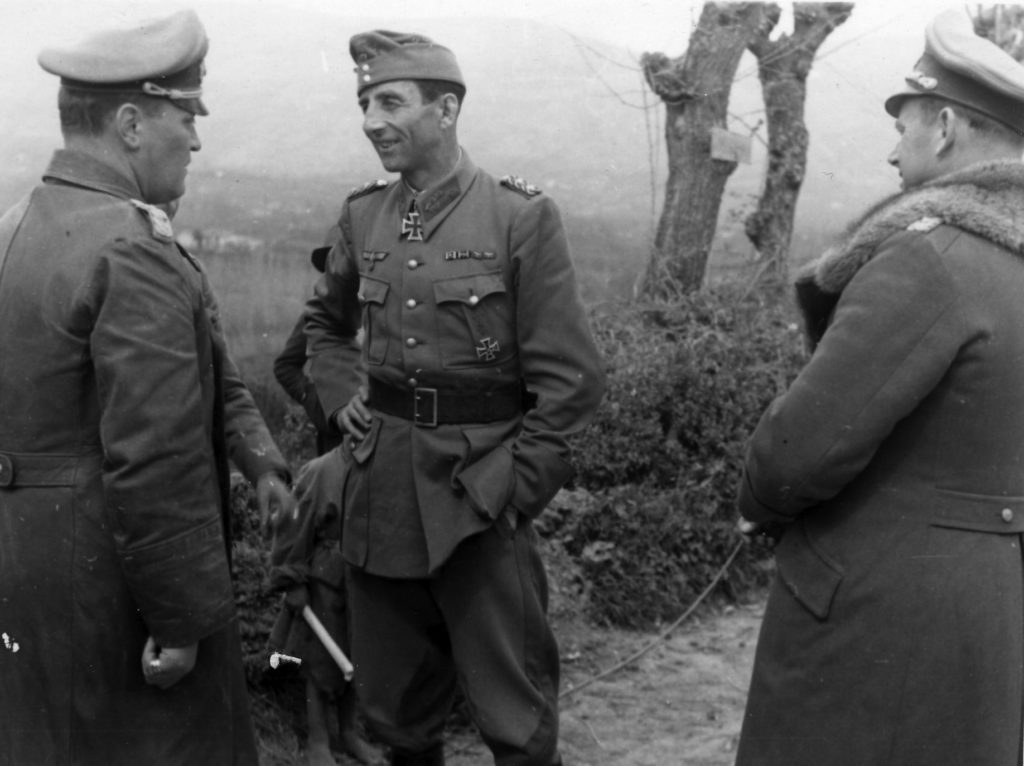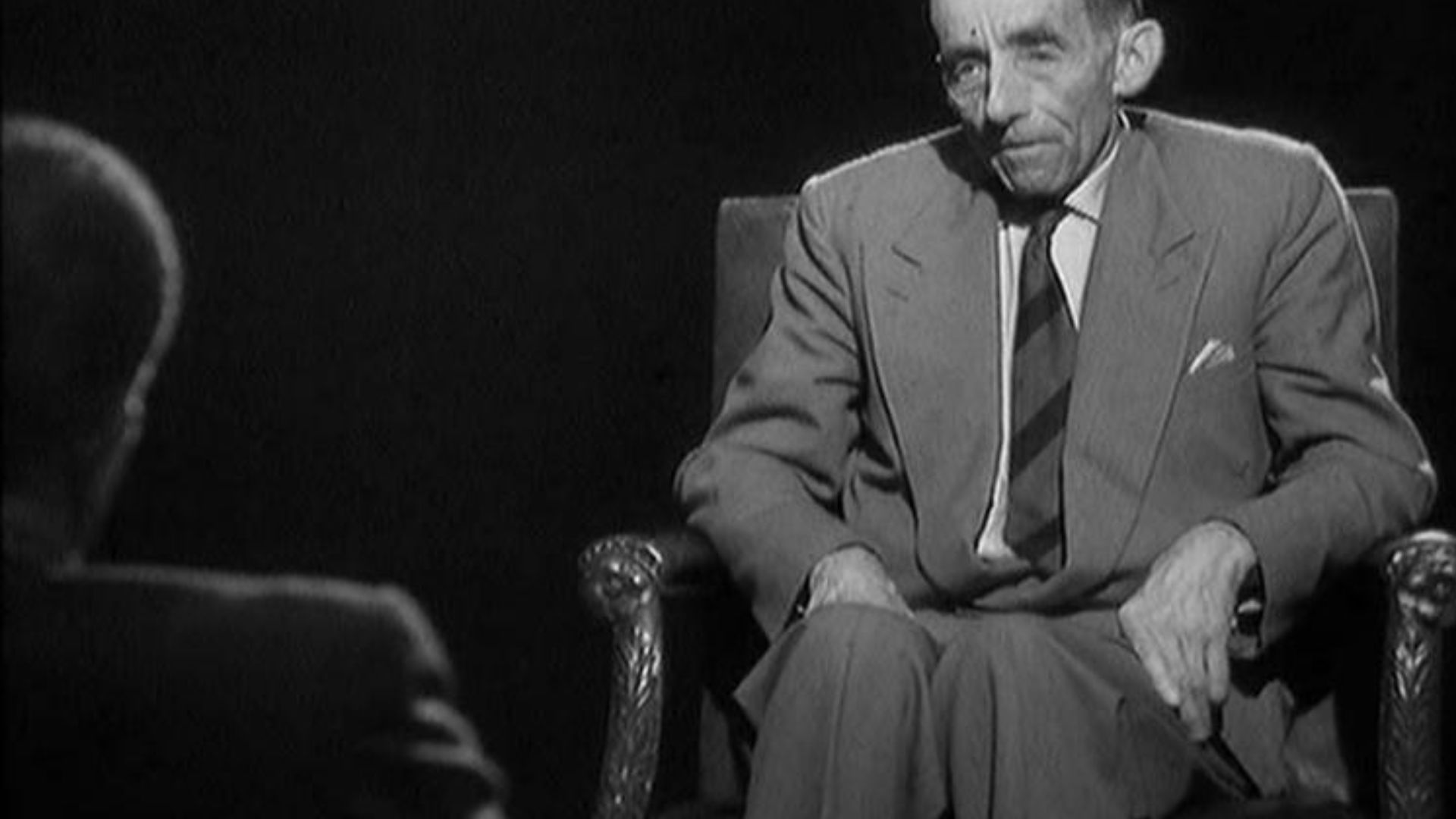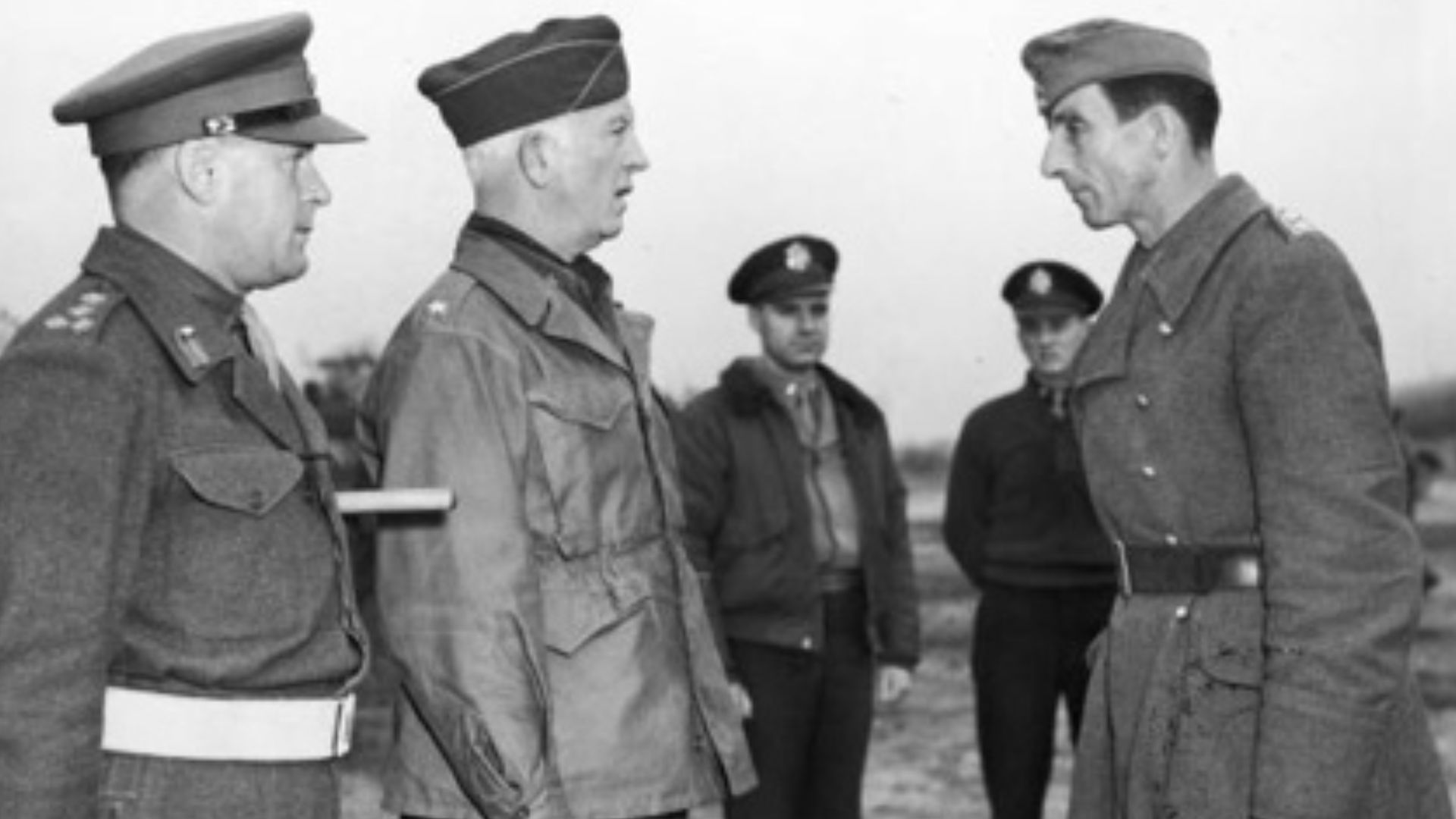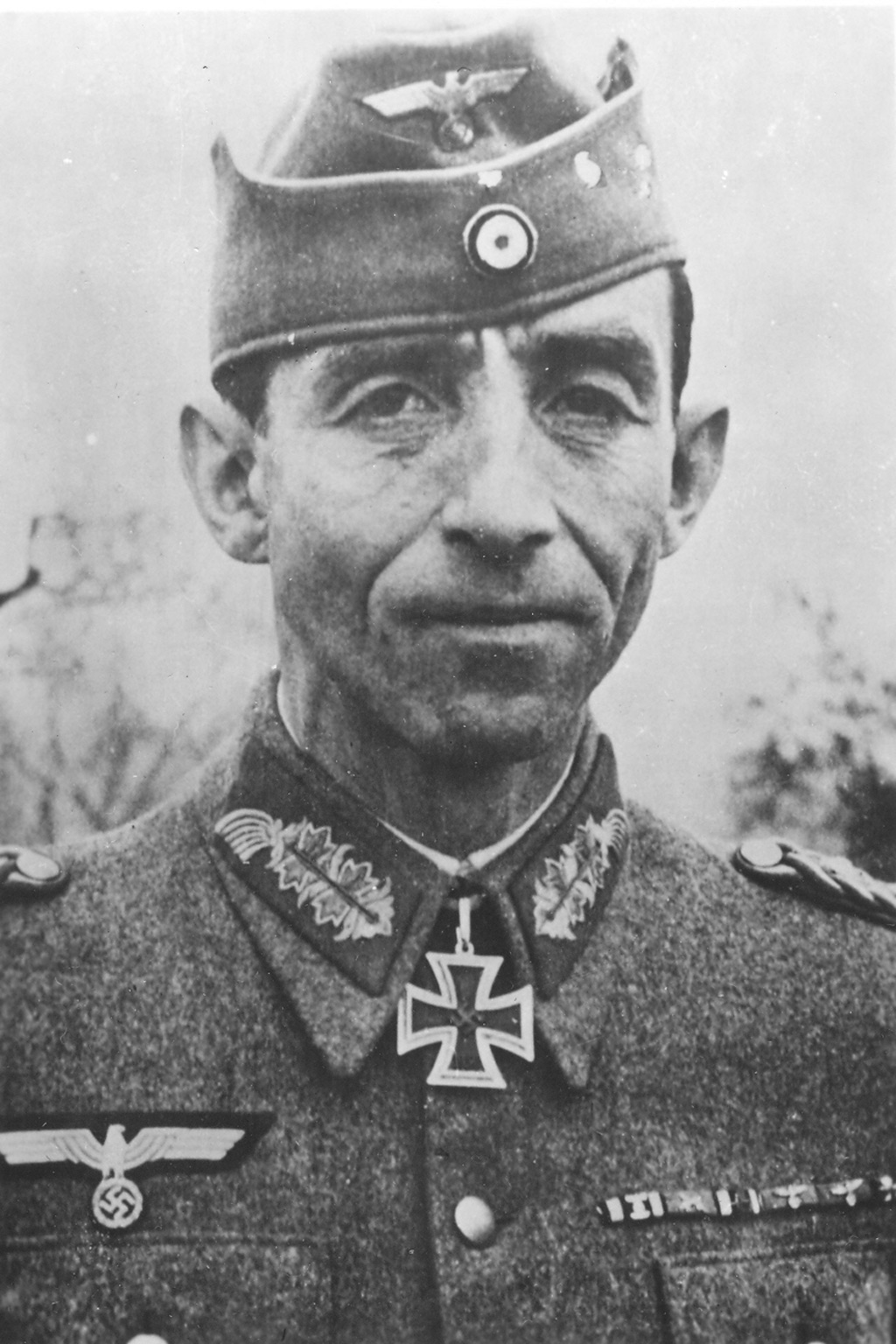
During two World Wars, Fridolin Von Senger Und Etterlindistinguished himself as a military commander and served in the German armed forces. Following the war, he released an intriguing autobiography titled "Neither Fear nor Hope" (in English).
In addition to being a military officer, Fridolin Von Senger Und Etterlin was a scholar who had a strong interest in languages. His rise through the ranks of the Reichswehr after becoming a Rhodes scholar at Oxford is an incredible story of skill and commitment. This essay will examine the life and career of this remarkable man, following his journey from the classroom to the front lines and examining his influence on military history.
The Early Life Of Fridolin Von Senger Und Etterlin
Fridolin Von Senger Und Etterlin, born on September 4, 1891, in Waldshut, Germany, near the Swiss border, led a remarkable early life marked by academic achievement and military service. In 1912, he received a prestigious Rhodes scholarship, which granted him the opportunity to study at the University of Oxford.
During his time at Oxford, he immersed himself in a rigorous academic environment, becoming fluent in both French and English, a testament to his intellectual prowess and determination.
However, the outbreak of World War I in August 1914 dramatically altered his trajectory. He was drafted into the military, where his exceptional leadership qualities were quickly recognized. He rose to the rank of lieutenant in the reserves, demonstrating his commitment to his country during a tumultuous period in history. This early military experience would eventually pave the way for his notable career as a military commander in World War II.
Fridolin Von Senger Und Etterlin In World War II
During the Battle of France, Fridolin Von Senger Und Etterlin commanded the Schnelle Brigade (fast Brigade) and was part of the German Commission for the French-Italian Armistice of 1940. He was made a Generalmajor (brigadier-general) on September 1, 1941.
Fridolin Von Senger Und Etterlin assumed command of the 17th Panzer Divisionin Southern Russia on October 10, 1942. He was made a Major-General (Generalleutnant) on May 1, 1943. During the Battle of Sicily in June 1943, he was given command of the German forces stationed there.
He oversaw German units on the islands of Sardinia and Corsica in August 1943. When the German position on these islands became unsustainable, he oversaw the evacuation from all of these islands. He was appointed commander of the XIV Panzer Korps in Italy on October 8, 1943, and was made General der Panzertruppen (lieutenant-general of armored troops) on January 1, 1944.
Fridolin Von Senger Und Etterlin was in charge of the incredibly effective defense of the Gustav Line, which encompassed Monte Cassino, during the Battle of Monte Cassino. The Allies didn't break the German stronghold until May 1944. An ironic note to the conflict was that Fridolin Von Senger Und Etterlin was a lay member of the Benedictines, whose monastery overlooked the town of Cassino and was devastated by Allied bombardment.
Prior to the combat, General Fridolin Von Senger Und Etterlin was able to effectively utilize the Hermann Goering Panzer Division's transportation resources to remove the monastery's valuables. Not a single truck was attacked during the many days of this exercise. During this period, there has been a lot of contact between the opposing headquarters.
One of the generals who opposed Nazi ideology was Fridolin Von Senger Und Etterlin, but he refrained from participating in the July 20 plot to assassinate Hitler. But because of his well-known anti-Nazi sentiments, the German authorities downplayed his support for Cassino's defense.
He penned his memoirs, Neither Fear nor Hope, after the war and had them translated into English. He also kept writing about military philosophy and affairs.
He participated in a BBC Radio debate on the Battle of Monte Cassino with fellow Rhodes Scholar Dan Davin and Desmond (Paddy) Costello, who, like Davin, had been on the intelligence staff of Allied corps commander Bernard Freyberg. In 1960, he was interviewed for the BBC television series Face to Face.
In Freiburg, he passed away. Ferdinand Maria von Senger und Etterlin (1923–1987), a military writer and general in the Bundeswehr, was his son.
Life Of Fridolin Von Senger Und Etterlin After World War
Fridolin von Senger und Etterlin was a well-known person in Germany after World War II. He was known for writing wartime literature and taking part in essential talks that tried to rebuild and bring people together after the war.
After World War II ended, Senger started writing his diaries, which were called "Krieg in Europa" (War in Europe) and gave readers a lot of helpful information about what military leaders went through and the problems they had to deal with. After some time, these diaries were turned into English as "Neither Fear nor Hope."
It was more than just writing that Senger wanted to heal the wounds of the war. He took an active role in the Königswinter talks, which were held every year to help German and British leaders get along and work together.
Working with essential people like Hans von Herwath and Richard von Weizsacker, he was a crucial part of trying to heal the wounds of World War II and lay the groundwork for future partnerships between the two countries.
Senger helped write the Himmerod paper in 1950. It was an essential piece of writing that talked about rearmament in the Federal Republic of Germany after the war. His peers, like military scholar Michael Howard, who remembered Senger's advice about Italy with fondness, thought a lot of him and his knowledge.
Notably, Fridolin von Senger und Etterlin left a lasting mark on his family. He was the father of Ferdinand Maria von Senger und Etterlin, who became a Bundeswehr General and wrote books about the military. Fridolin's lifelong commitment to military issues, diplomacy, and peace made a lasting impression on Germany after the war. He helped the country rebuild and become a significant player in the world stage.
Awards And Accolades Of Fridolin Von Senger Und Etterlin
Fridolin von Senger und Etterlin, a distinguished military officer during World War II, received several prestigious awards and accolades for his exceptional service and leadership within the German Wehrmacht. One of the most notable honors he received was the German Cross in Gold, which was awarded to him on October 11, 1943.
At that time, he held the rank of Generalleutnant and served as the commander of the German Wehrmacht on Corsica. This award recognized his outstanding contributions and achievements on the battlefield during a crucial period of the war.
In addition to the German Cross in Gold, Fridolin von Senger und Etterlin was also bestowed with the Knight's Cross of the Iron Cross, a highly esteemed military decoration. He was awarded the Knight's Cross on February 8, 1943, while holding the rank of Generalmajor and serving as the commander of the 17. Panzer-Division. This recognition highlighted his exceptional leadership and strategic prowess in leading his division through various combat situations.
Furthermore, Fridolin von Senger und Etterlin's remarkable career and dedication to the German military were acknowledged with the Oak Leaves to his Knight's Cross of the Iron Cross. This prestigious honor was awarded to him on April 5, 1944, when he held the rank of General der Panzertruppe and served as the commanding general of the XIV. Panzerkorps.
The Oak Leaves were a testament to his continued excellence and achievements in the field, and they solidified his reputation as a highly decorated and capable military leader.
Legacy Of Fridolin Von Senger Und Etterlin
His son Ferdinand Maria Johann Fridolin von Senger und Etterlin continued the legacy of his father; he was a soldier in the German Army in both the Wehrmacht of World War II and the postwar Bundeswehr, as well as a civilian jurist in the German Federal service.
He attained the rank of general while serving as an officer in the Bundeswehr and concluded his tenure as the head of NATO's Allied Forces Central Europe (AFCENT). In addition, he wrote a great deal of literature about military topics.
Born on June 8, 1923, in Tübingen, Germany, Senger und Etterlin came from a military family with over 250 years of experience serving many German polities. His father, Fridolin von Senger und Etterlin, started his own highly accomplished military career with the Reichswehr before to the First World War.
He served as an officer in the Wehrmacht during the Second World War, rising to the rank of General der Panzertruppe ("General of Armoured Troops"). Ernst Alexander von Kracht, a Prussian general, was the father of Hilda Margarethe von Kracht, his mother. He wanted to serve in the military, just like the majority of his male ancestors, and he joined his father's cavalry unit at the age of 17. He wed Ebba von Keudell in 1946, and the two went on to have four kids.
Fridolin Von Senger Und Etterlin - Faqs
Who Was Fridolin Von Senger Und Etterlin, And What Was His Role In World War II?
Fridolin Von Senger Und Etterlin was a German military commander in World War II, known for leading the defense of Monte Cassino.
What Significant Awards Did He Receive During The War?
He received the German Cross in Gold, Knight's Cross of the Iron Cross, and Oak Leaves for his Knight's Cross.
How Did Fridolin Von Senger Und Etterlin Contribute To Post-War Diplomacy?
He participated in initiatives like the Königswinter talks and co-authored the Himmerod paper to rebuild relations and discuss rearmament in Germany.
Who Continued Fridolin Von Senger Und Etterlin’s Military Legacy?
His son, Ferdinand Maria Johann Fridolin von Senger und Etterlin, served in the Bundeswehr and NATO and authored military literature.
Conclusion
Fridolin Von Senger Und Etterlin's life and career encompassed both remarkable military achievements and a commitment to diplomacy and reconciliation in the post-World War II era. His journey from being a Rhodes scholar at Oxford to a distinguished military commander in World War II is a testament to his versatility and leadership.
Notably, his role in the defense of the Gustav Line and the preservation of the Monte Cassino monastery's valuables showcases his tactical acumen and principles. Moreover, his efforts in initiatives like the Königswinter talks and contributions to the Himmerod paper demonstrated his commitment to rebuilding and fostering partnerships after the war.
The legacy of Fridolin Von Senger Und Etterlin lives on through his son, who continued the family's tradition of military service, leaving an enduring impact on Germany's military and diplomatic history.


